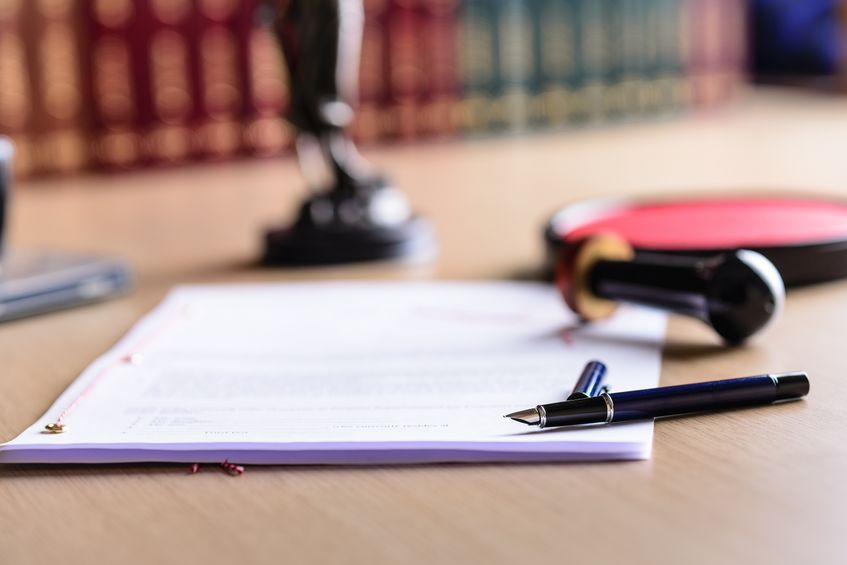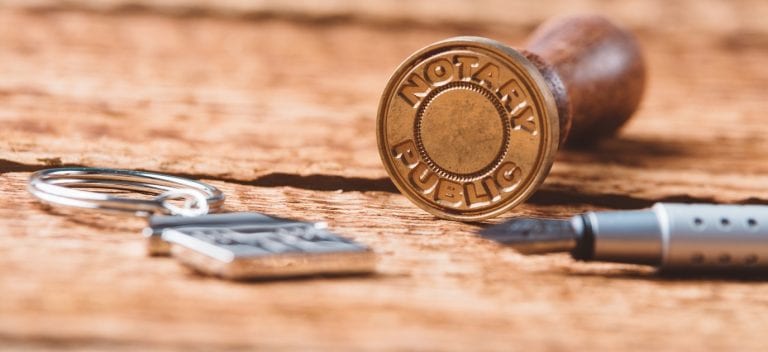Do you need a single document, or a loan package notarized? Leetone Photo Center can help, bring all the documents that need to be Notarized and your valid picture ID to our location and we will be happy to assist you.
Mobile Notary Public Services are also available upon request for business addresses.
We have a combined 40 years of experience notarizing your important documents. Please make sure to have your valid Photo ID or passport at the time of the Notary.
What is a Notary Public?
Among a California notary public’s various roles, one is to serve as an officer that authenticates the signing of important legal documents. A notary is simply an impartial witness to the taking of acknowledgements and/or affidavits, the signing of documents and administering oaths.
California Notary Public Fees:
California law makes it clear that a notary may charge any fee as long as the fee is not higher than the maximum allowed.
- Acknowledgment – $15 – For an Acknowledgment or proof of a deed, or other instruments, including the seal and writing the certificate, $15 for each signature.
- Jurat – $15 – For administering an oath or affirmation to one person and executing the Jurat, including the seal, $15 for each signature.
- Deposition – $30 – For all services in connection with the taking of any deposition, $30, and an additional $7 for administering the oath to the witness and $7 for the certificate to the deposition.
- Note: If a notary public is not a certified shorthand reporter, the notary public should inform the person they may wish to contact a certified shorthand reporter who is licensed by the Court Reporters Board of California to take the deposition.
- Certifying a Copy Power of Attorney – $15 for each copy.
- Public Request for Line Item – For a line item copied from the notary public’s journal, $.30 per line item.
Note: The actual fee, if any, charged must be entered in the notary’s sequential journal.
IDENTIFICATION
When completing a certificate of acknowledgment or a jurat, a notary public is required
to certify to the identity of the signer of the document. (Civil Code sections 1185(a), 1189,
Government Code section 8202) Identity is established if the notary public is presented with
satisfactory evidence of the signer’s identity. (Civil Code section 1185(a))
Satisfactory Evidence – “Satisfactory Evidence” means the absence of any information,
evidence, or other circumstances which would lead a reasonable person to believe that the
individual is not the individual he or she claims to be and (A) identification documents or (B)
the oath of a single credible witness or (C) the oaths of two credible witnesses under penalty
of perjury, as specifed below:
A. Identification Documents – The notary public can establish the identity of the signer
using identification documents as follows (Civil Code section 1185(b)(3) and (4)):
- There is reasonable reliance on any one of the following forms of identification, provided
it is current or was issued within 5 years:
a. An identification card or driver’s license issued by the California Department of Motor
Vehicles;
b. A United States passport;
c. An inmate identification card issued by the California Department of Corrections and
Rehabilitation, if the inmate is in custody in California state prison;
d. Any form of inmate identification issued by a sheriff’s department, if the inmate is in
custody in a local detention facility; or - There is reasonable reliance on any one of the following forms of identification, provided
that it also contains a photograph, description of the person, signature of the person, and an
identifying number:
(a) A valid consular identification document issued by a consulate from the applicant’s country
of citizenship, or a valid passport from the applicant’s country of citizenship;
(b) A driver’s license issued by another state or by a Canadian or Mexican public agency
authorized to issue driver’s licenses;
(c) An identification card issued by another state;
(d) A United States military identification card (caution: current military identification cards
might not contain all the required information);
(e) An employee identification card issued by an agency or office of the State of California,
or an agency or office of a city, county, or city and county in California.
(f) An identification card issued by a federally recognized tribal government.
Note: The notary public must include in his or her journal the type of identifying document, the
governmental agency issuing the document, the serial or identifying number of the document,
and the date of issue or expiration of the document that was used to establish the identity of
the signer. (Government Code section 8206(a)(2)(D))
B. Oath of a Single Credible Witness – The identity of the signer can be established by
the oath of a single credible witness whom the notary public personally knows. (Civil Code
section 1185(b)(1)) The notary public must establish the identity of the credible witness by
the presentation of paper identification documents as set forth above. Under oath, the credible
witness must swear or affirm that each of the following is true (Civil Code section 1185(b)(1)
(A)(i)-(v)): - The individual appearing before the notary public as the signer of the document is the
person named in the document. - The credible witness personally knows the signer;
- The credible witness reasonably believes that the circumstances of the signer are such that
it would be very difficult or impossible for the signer to obtain another form of identification; - The signer does not possess any of the identification documents authorized by law to
establish the signer’s identity; and
general information 11
- Date, time and type of each official act (e.g., acknowledgment, jurat).
- Character of every instrument sworn to, affirmed, acknowledged or proved before the
notary public (e.g., deed of trust). - The signature of each person whose signature is being notarized.
- A statement that the identity of a person making an acknowledgment or taking an oath
or affirmation was based on “satisfactory evidence” pursuant to Civil Code section 1185.
If satisfactory evidence was based on:
- Paper identification, the journal shall contain the type of identifying document, the
governmental agency issuing the document, the serial or identifying number of the document,
and the date of issue or expiration of the document. - A single credible witness personally known to the notary public, the journal shall contain
the signature of the credible witness or the type of identifying document, the governmental
agency issuing the document, the serial or identifying number of the document, and the date
of issue or expiration of the document establishing the identity of the credible witness; or - Two credible witnesses whose identities are proven upon the presentation of satisfactory
evidence, the journal shall contain the signatures of the credible witnesses and the type of
identifying document, the governmental agency issuing the document, the serial or identifying
number of the document, and the date of issue or expiration of the document establishing the
identity of the credible witnesses.
- The fee charged for the notarial service.
- If the document to be notarized is a deed, quitclaim deed, deed of trust, or other document
affecting real property or a power of attorney document, the notary public shall require the
party signing the document to place his or her right thumbprint in the journal. If the right
thumbprint is not available, then the notary public shall have the party use his or her left
thumb, or any available finger and shall so indicate in the journal. If the party signing the
document is physically unable to provide a thumb or fingerprint, the notary public shall
so indicate in the journal and shall also provide an explanation of that physical condition.
- The credible witness does not have a financial interest and is not named in the document signed.
Note: The single credible witness must sign the notary public’s journal or the notary public
must indicate in his or her journal the type of identifying document, the governmental agency
issuing the document, the identifying number of the document, and the date of issuance or
expiration of the document presented by the witness to establish the identity of the witness.
(Government Code section 8206(a)(2)(D))
C. Oaths of Two Credible Witnesses – The identity of the signer can be established by
the oaths of two credible witnesses whom the notary public does not personally know. (Civil
Code section 1185(b)(2)) The notary public first must establish the identities of the two credible
witnesses by the presentation of paper identification documents as listed above. Under oath,
the credible witnesses must swear or affirm under penalty of perjury to each of the things sworn
to or affirmed by a single credible witness, as set forth above. (Civil Code sections 1185(b)(2)
and 1185(b)(1)(A)(i)-(v))
Note: The credible witnesses must sign the notary public’s journal and the notary public must
indicate in his or her journal the type of identifying documents, the identifying numbers of the
documents, and the dates of issuance or expiration of the documents presented by the witnesses
to establish their identities. (Government Code section 8206(a)(2)(E)) (Information extracted from the Notary Public 2022 Handbook published by the Secretary of State of California –2022 Notary Public Handbook (ca.gov)
BOOK ONLINE
Click to call (415) 391-9890 or book online.
Open Monday through Friday from 9am to 4pm.
WALK-INS Welcome


